The Crisis Report - 100
The MAGAts are celebrating their "triumph" but it's going to be short lived. The Climate System doesn't give a fuck what they "think".
COLLAPSE has already started.
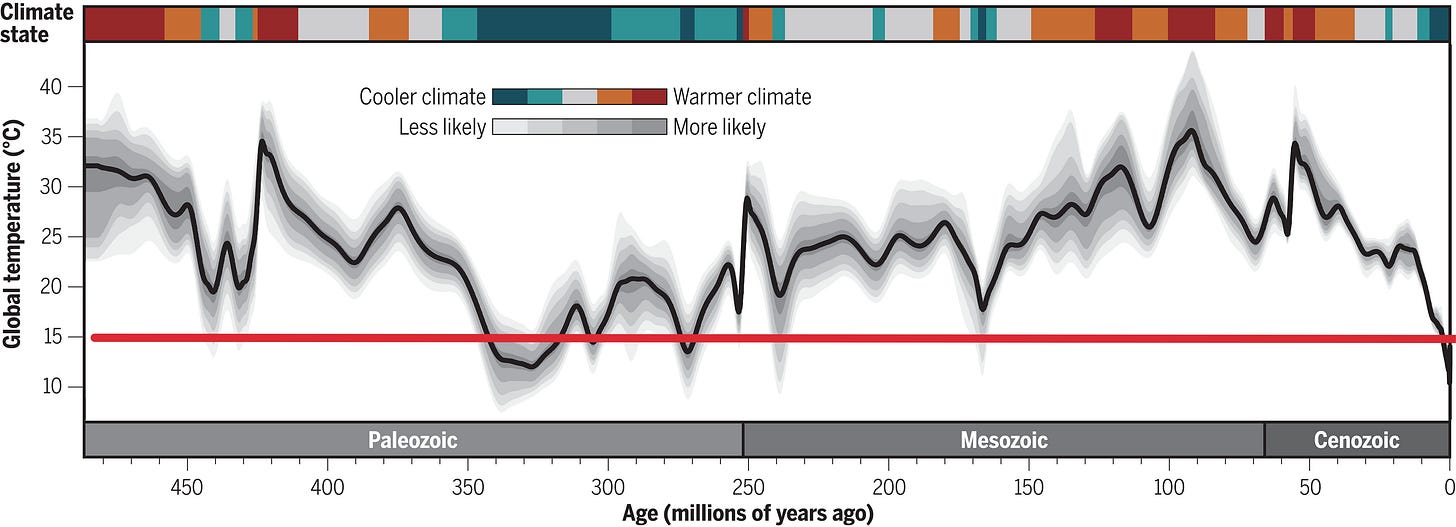
Since this a “landmark” Crisis Report, my 100th article. I decided to adopt a more “conversational” tone. I appreciate all of my readers. Both those that have been with me since the first and those who have joined us recently.
I know, particularly after hanging out on Reddit for a few months, how difficult it can be for ANYONE to feel “informed” about the Climate Crisis that is upon us. With WHITE America voting for the “Alfred E. Nueman, I’m with Stupid” party things are only going to get worse.
Climate misinformation is rife on social media - and poised to get worse
Meta's decision could open the floodgates to more climate misinformation on its apps, including misleading or…theconversation.com
However, the MAGAts have been “hostile” to doing anything to reduce fossil fuel consumption for a long time. Since the Reagan days of 80’s.
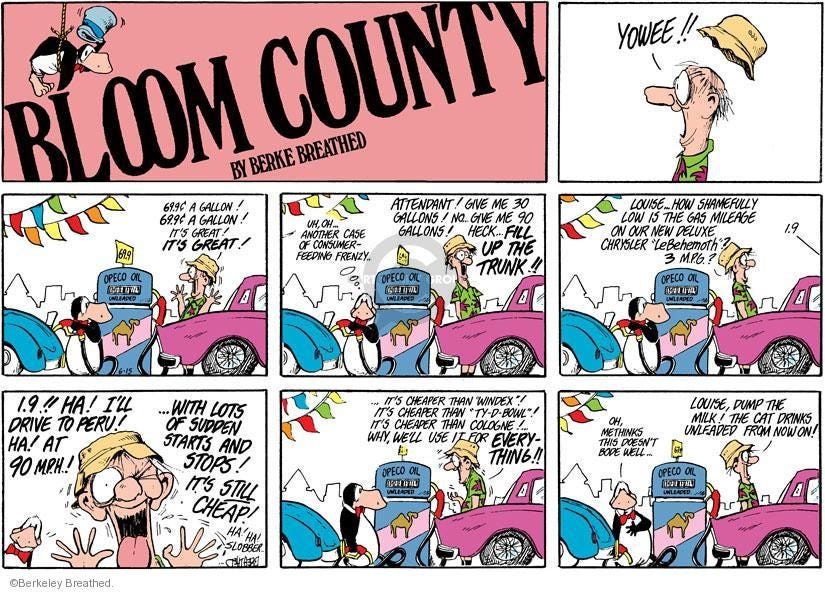
The people who WANT to believe that bullshit are going to keep believing it right up to the point of their death. They are the dying Covid patients screaming at the nurses and doctors that “Covid is a hoax” even as it kills them.
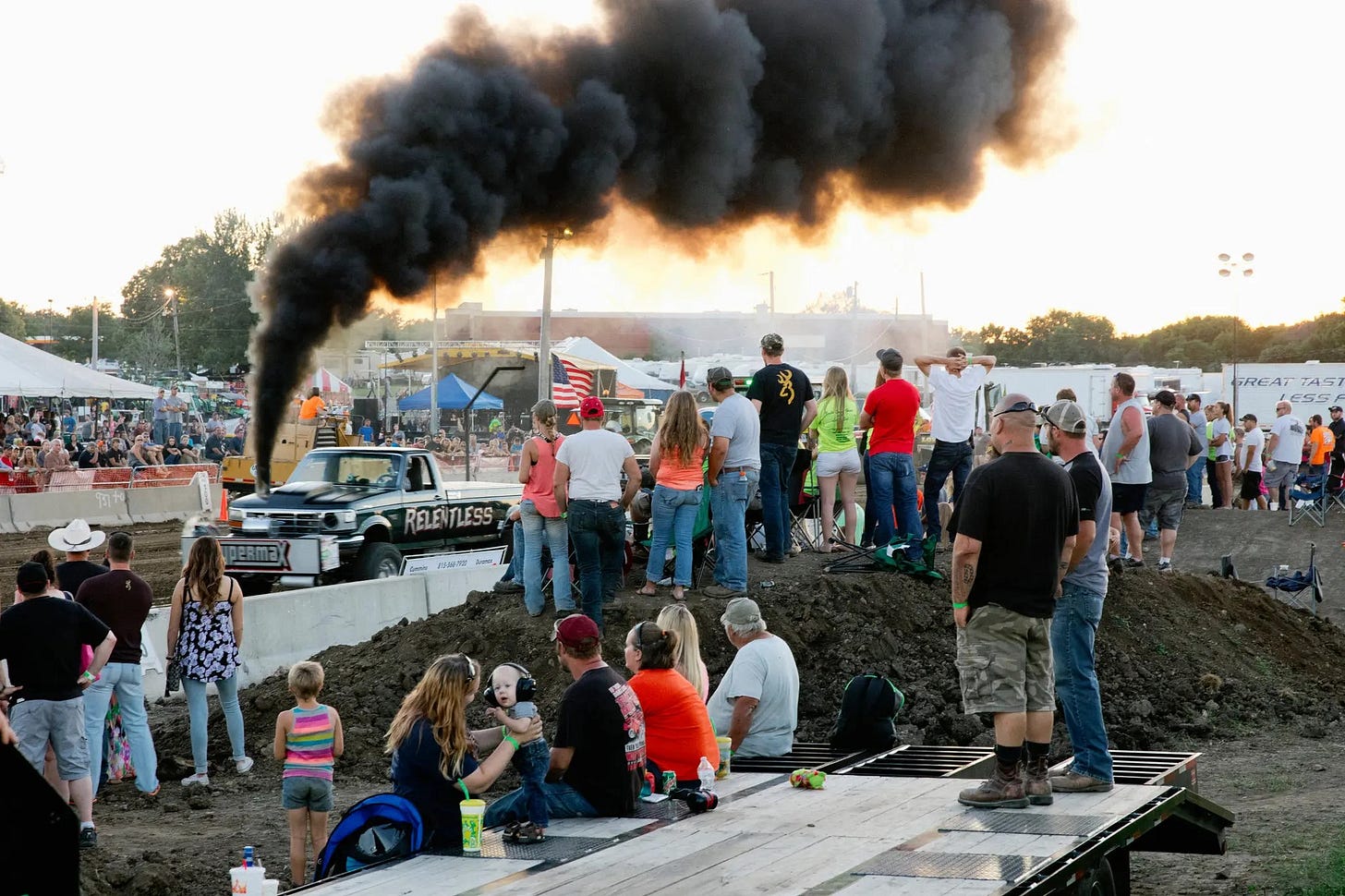
There is nothing we can do for them now. They will NEVER accept the reality of “Climate Change”. Much less the idea that the Climate Crisis bearing down on us is going to cause the COLLAPSE of our global civilization.
Even as droughts destroy the land they farm.
Floods and hurricanes sweep away their homes
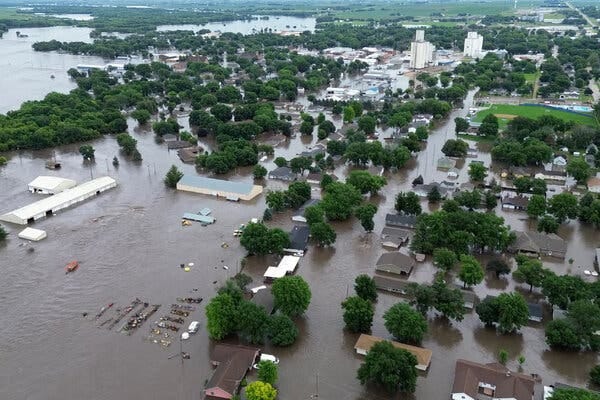
Wildfires get bigger and bigger.
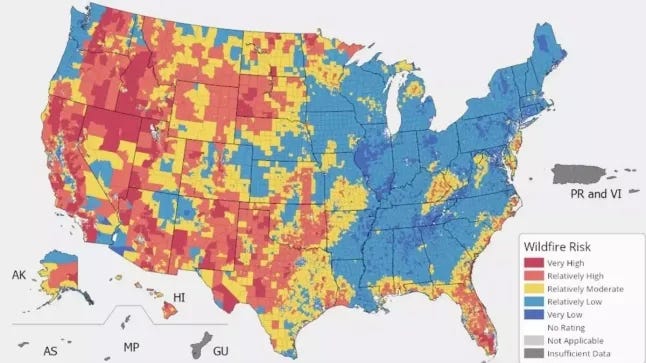
Even with all of that. The MAGAt voters will die screaming that “Climate Change is a hoax” before they admit they were wrong. The only thing that MIGHT open their minds a tiny bit is not being able to get homeowners insurance.
California isn't the only place where insurers are dropping homeowners
Insurance "nonrenewal" rates have been climbing nationwide. They've hit climate-sensitive areas including Florida…www.washingtonpost.com
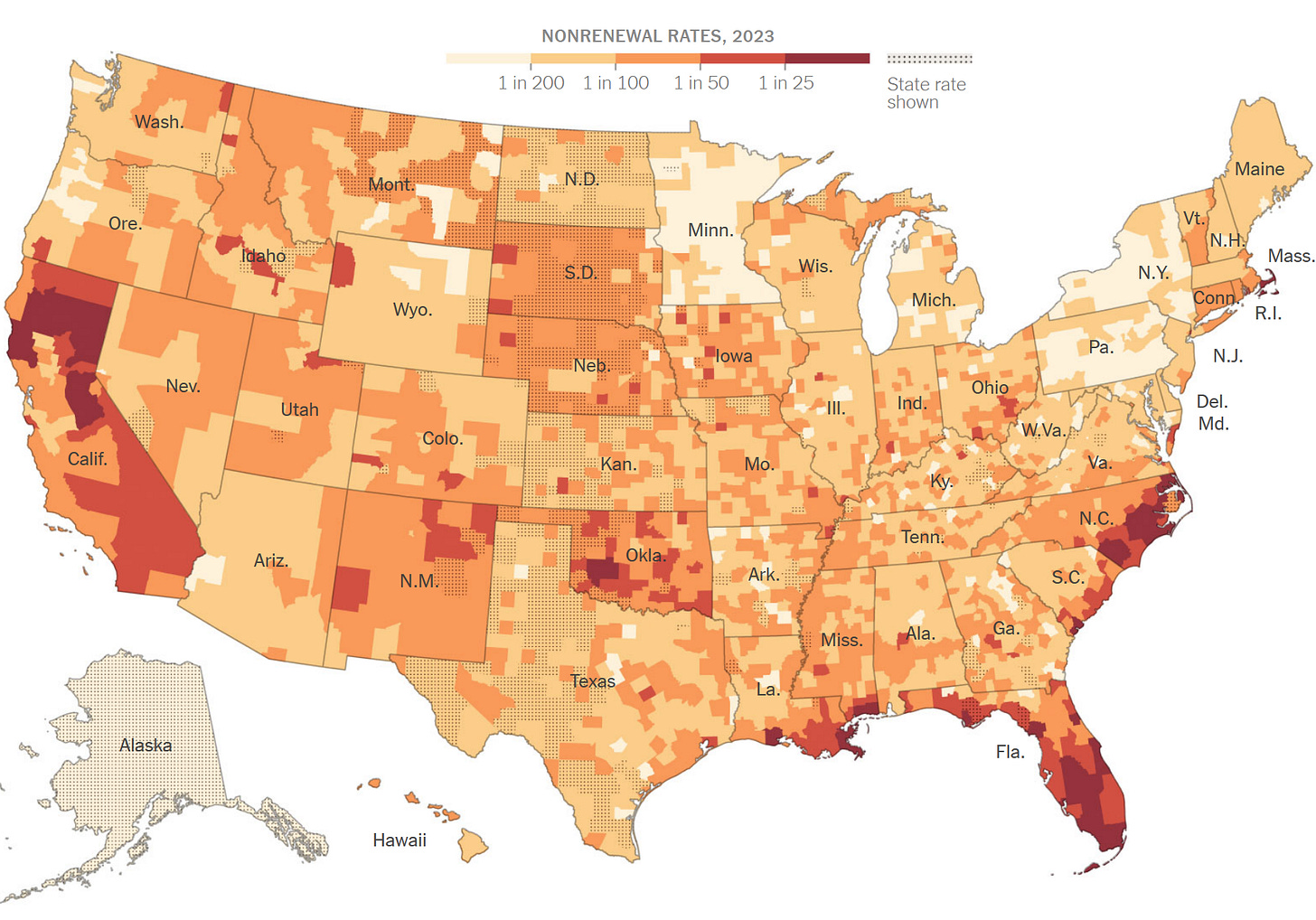
Because, despite what the MAGAts would like to believe about this being a “Liberal” problem. Insurance companies are losing money everywhere.
When insurance companies loose money they have to raise rates. That’s a HARD FACT of life. They are in the business of “managing risk”. If they are losing money it means that CLIMATE RISKS are increasing “faster than expected”. The insurance industry is looking at the numbers and waking up to the HUGE RISKS that climate change is bringing for homeowners across the country.
Insurance companies are raising rates and lots of homeowners are deciding to “forgo” insurance. More Americans, Risking Ruin, Drop Their Home Insurance
As climate threats worsen, they are skipping payments and losing protection.www.nytimes.com -Jan 16, 2025
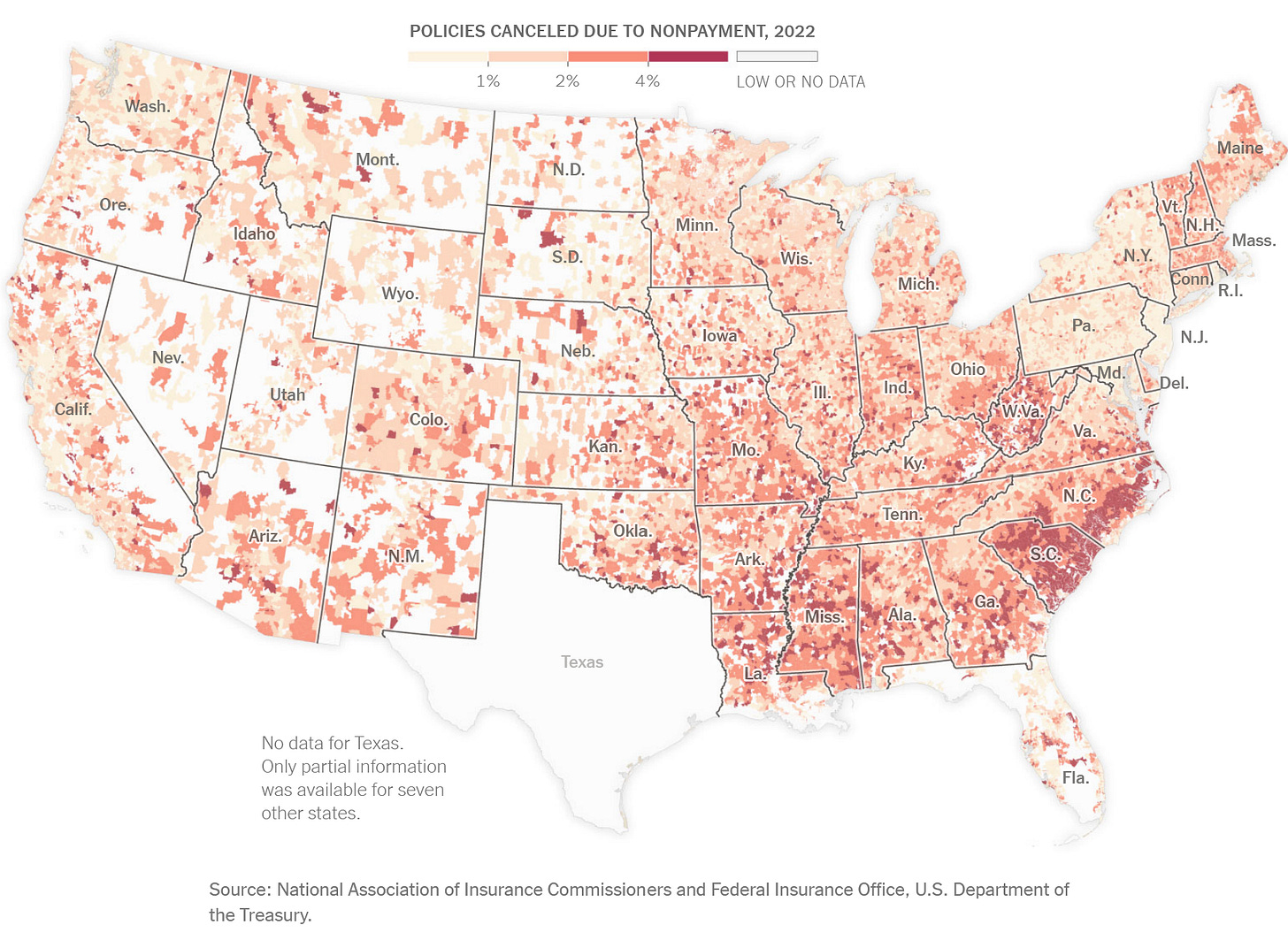
Notice how many of the MAGAt states have people dropping their homeowners insurance. These same people don’t want to help California, but will expect the rest of the country to bail them out when the inevitable disasters strike.
Now here's the thing. You CANNOT simply pass a law saying insurance companies have to insure peoples houses. I mean, you can, but it will probably be a DISASTER.
The insurance companies are looking at the numbers and they are saying that Climate Change is not only happening way faster than they expected. It’s also a LOT worse than they thought.
You might want to sell your home now instead of later and “cash out” of the casino. Without insurance banks won’t make mortgage loans and the housing market will seize up. It is estimated that over $1 TRILLION dollars of “value” in the housing market is poised to “evaporate”.
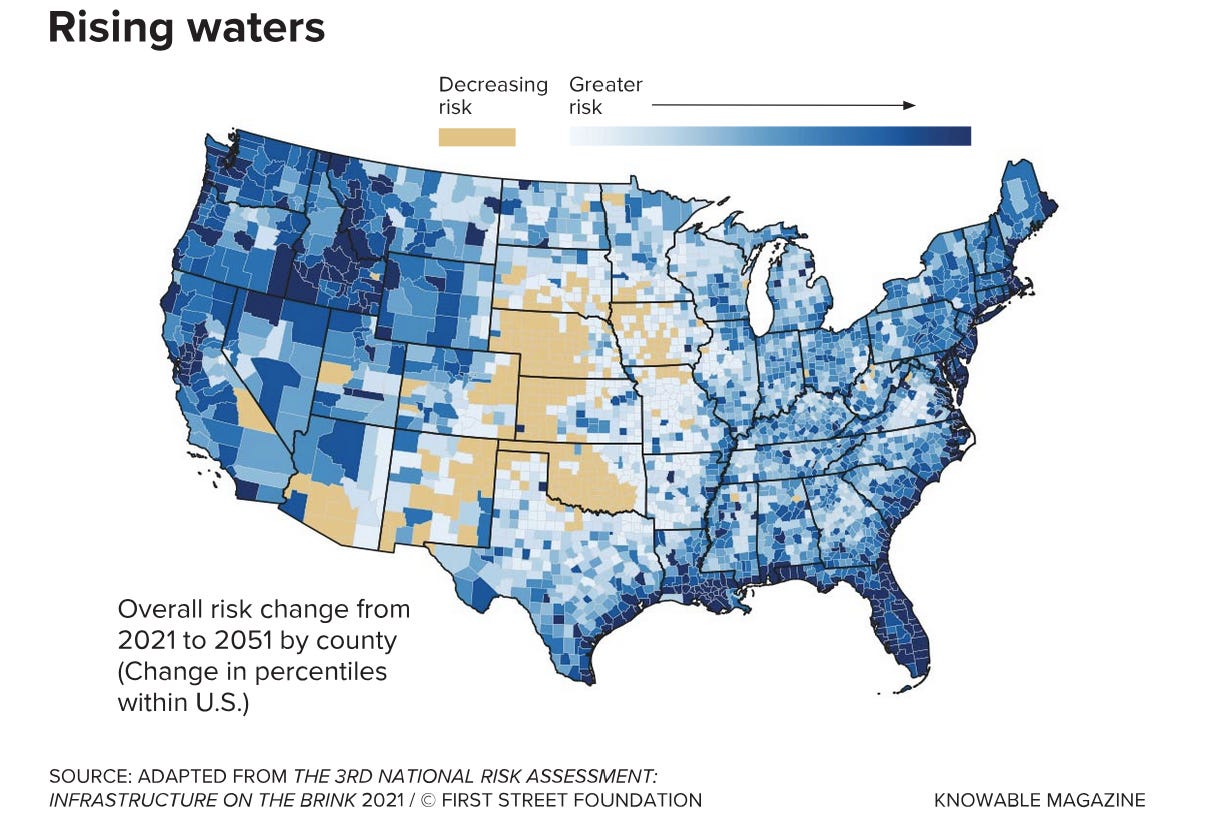
Those areas of “decreased” flood risk, you don’t want to move there. Those are the areas that are going to be turning to deserts from “mega-droughts”.
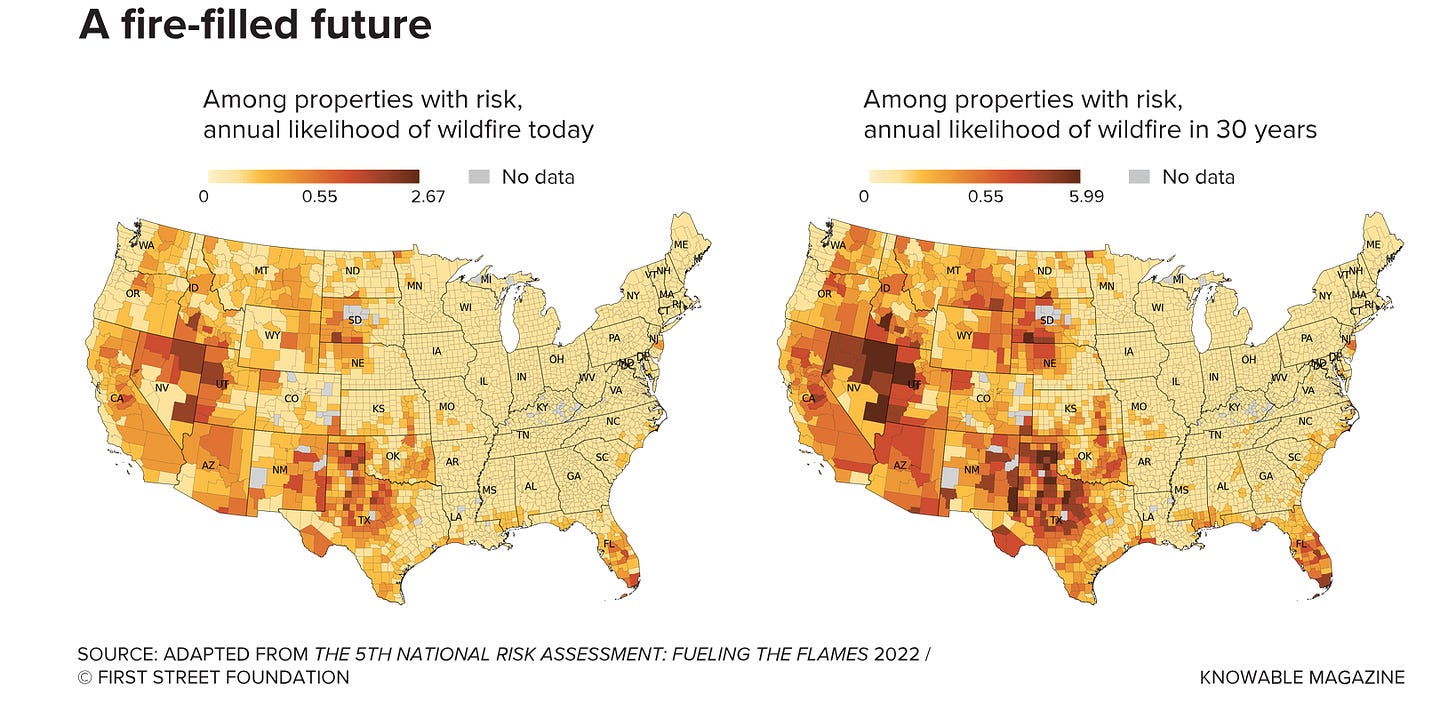
The two big MAGAt states, Texas and Florida are basically going to become uninsurable. These projections by First Street Foundation are for a +2°C world by 2050. The numbers are now showing it could be WORSE.
Global economy could face 50% loss in GDP between 2070 and 2090 from climate shocks, say actuaries - Exclusive: Report by risk experts says previous assessments ignored severe effects of climate crisis www.theguardian.com - Jan 16, 2025
“The stark warning from risk management experts the Institute and Faculty of Actuaries (IFoA) hugely increases the estimate of risk to global economic wellbeing from climate change impacts such as fires, flooding, droughts, temperature rises and nature breakdown. In a report with scientists at the University of Exeter, the IFoA which uses maths and statistics to analyse financial risk for businesses and governments, called for accelerated action by political leaders to tackle the climate crisis.”
Ummmm…yeah. Like that's going to happen with the MAGAts running the country.
Trump Orders a U.S. Exit From the World's Main Climate Pact
The United States will be one of only four countries outside the Paris Agreement, which is designed to reduce global… www.nytimes.com Jan 20, 2025
Consider some of the other things this report states.
At +3°C or more of heating by 2050, there could be more than 4 billion deaths, significant sociopolitical fragmentation worldwide, failure of states (with resulting rapid, enduring, and significant loss of capital), and extinction events.
Sandy Trust, the lead author of the report, said there was no “realistic plan” in place to avoid this scenario. FYI- they ARE considering the deployment of “renewables” and EV’s in this report. They considered the points of the Techno-Optimists and Hopium peddlers who keep insisting that “It’s not too late” and “The future will be like the past, just without fossil fuels”.
The people like this guy on Reddit recently. He starts off by telling us that global warming is NOT ACCELERATING. He states:
“While this might be true on the timescale of a few years, mainly due to the shot-in-the-arm ironically provided by the cleaner diesel revolution (aerosol demasking and albedo ramifications), particularly in maritime applications. (Even that's dubious, though, for example due to the denuclearization of the German grid and the concomitant rise in dirty emissions. And of course some shipping companies will delay their fuel migration indefinitely.) Beyond that, though.”
There is nothing in the physics of the situation that suggests an acceleration in global warming. Please understand that warming can continue apace without accelerating.
Contrast that with this article by Zeke Hausfather, noted Climate Moderate at Berkeley Earth. Here is Zeke Hausfather of Berkeley Earth in October 2023.
I Study Climate Change. The Data Is Telling Us Something New.
Where Zeke states.
While many experts have been cautious about acknowledging it, there is increasing evidence that global warming has accelerated over the past 15 years rather than continued at a gradual, steady pace. That acceleration means that the effects of climate change we are already seeing — extreme heat waves, wildfires, rainfall and sea level rise — will only grow more severe in the coming years.”
“I don’t make this claim lightly. Among my colleagues in climate science, there are sharp divisions on this question, and some aren’t convinced it’s happening.”
The Techno Optimists and Hopium peddlers like Hannah Ritchie ARE the “mainstream”. They are telling people that things ARE NOT getting rapidly worse. They are LYING to us and the mainstream media is pushing their lies as “the truth”.
Mr. Reddit Guy then states:
"Nuclear fusion WILL happen." Tokamak fusion probably never will. I ought to know. I worked in this field, albeit as a university student. It could most charitably be described as a research project into plasma dynamics that might bear fruit in unexpected ways. But the future is likely a mix of small and micro sized fission reactors, possibly involving thorium.”
Longer term (2032 on my Bingo card) we'll see pB11 fusion based on particle accelerator physics (i.e. not your grandfather's magnetic confinement) in commercial deployment.
OMG is that a WILD leap. “Commercial” deployment of fusion reactors in JUST seven years. Mr. Reddit Guy goes on and addresses the looming “food crisis”. He dismisses the idea that, "Mass desertification will lead to mass starvation." He argues that,
The grain belts will roughly migrate toward the poles, mile by mile. Countries that don't prepare for this are going to be struggling to afford grain importation, not to mention mass emigration. But humanity will survive. We really don't need crops.
Algae factories run on nuclear power will keep us alive. No, I don't think we'll have to stoop to such gastronomic lows, but the point is that we'll slurp it up all day long if the alternative is extinction.
A more likely scenario is that this crop migration happens so slowly that the wealthier countries of the world create massive and intelligent greenhouse agriculture to continue feeding their populations in a normal, if more expensive, manner. Robot slaves will tend the crops. Speaking of robots...
Then things get a LOT clearer. Mr. “Climate Realist” is actually against “caps” on CO2 emissions. This is his REAL point.
“(Liberals argue) that we don't NEED fusion reactors and small fission reactors (like the plutonium breeder reactors Bill Gates likes). We can just put a hard cap on carbon emissions under a Marxist system."
“Absolutely true. There is obviously a nonzero level of carbon emissions that will halt global warming (well, at least in the sense that nothing further is added to the warming pipeline). But before you do this, you might want to watch "The Killing Fields" so you'll have some idea of how Marxism has turned out, time and again, throughout history.”
“I get it: Marxism 2.0 is going to be run by good people who care about their constituents and the environment”.
“People who will gladly step aside every few years in order to allow the unarmed deprivatized population to vote. Enjoy the garbage, the corruption, the broken infrastructure, and most importantly, the new Marxist elites who simply replaced the capitalist ones that you ran out of town.”
“I don't think pure capitalism is moral, simply because it effectively imposes the death penalty on people for making bad business decisions. But we can have a basic social safety net for the “truly needy” without handing over the reigns of humanity to Marxist psychopaths.”
Who does Mr. “Tech Bro” think is going to prosper in Collapse?
(1) Societies who embrace some form of nuclear power at scale.
(2) Societies who hoard rare Earth elements.
(3) Societies who limit immigration via sufficiently high talent or money thresholds.
(4) Societies who manufacture and deploy robotics at scale.
(5) Societies who consult AI for ideas but never empower it with critical decisions.
(6) Societies who embrace cryptocurrency in a sufficiently secure and decentralized form, not necessarily involving energy-intensive proof-of-work.
(7) Societies who lower or eliminate taxes on capital gains, thereby inducing capital inflows (hello UAE, Singapore, and others).
(8) Societies who rigorously forbid polluting the environment outside of isolated industrial areas (except temporarily with CO2 emission, during nuclear buildout).
(9) Societies who recycle as much as possible, including drinking water.
“These are the characteristics of societies which will be buying raw materials from all those Marxist paradises.”
IE. the “good” capitalists societies that EVERYONE will want to live in.
This is the “Tech Bro” position on the Climate Crisis.
What do the actuaries think?
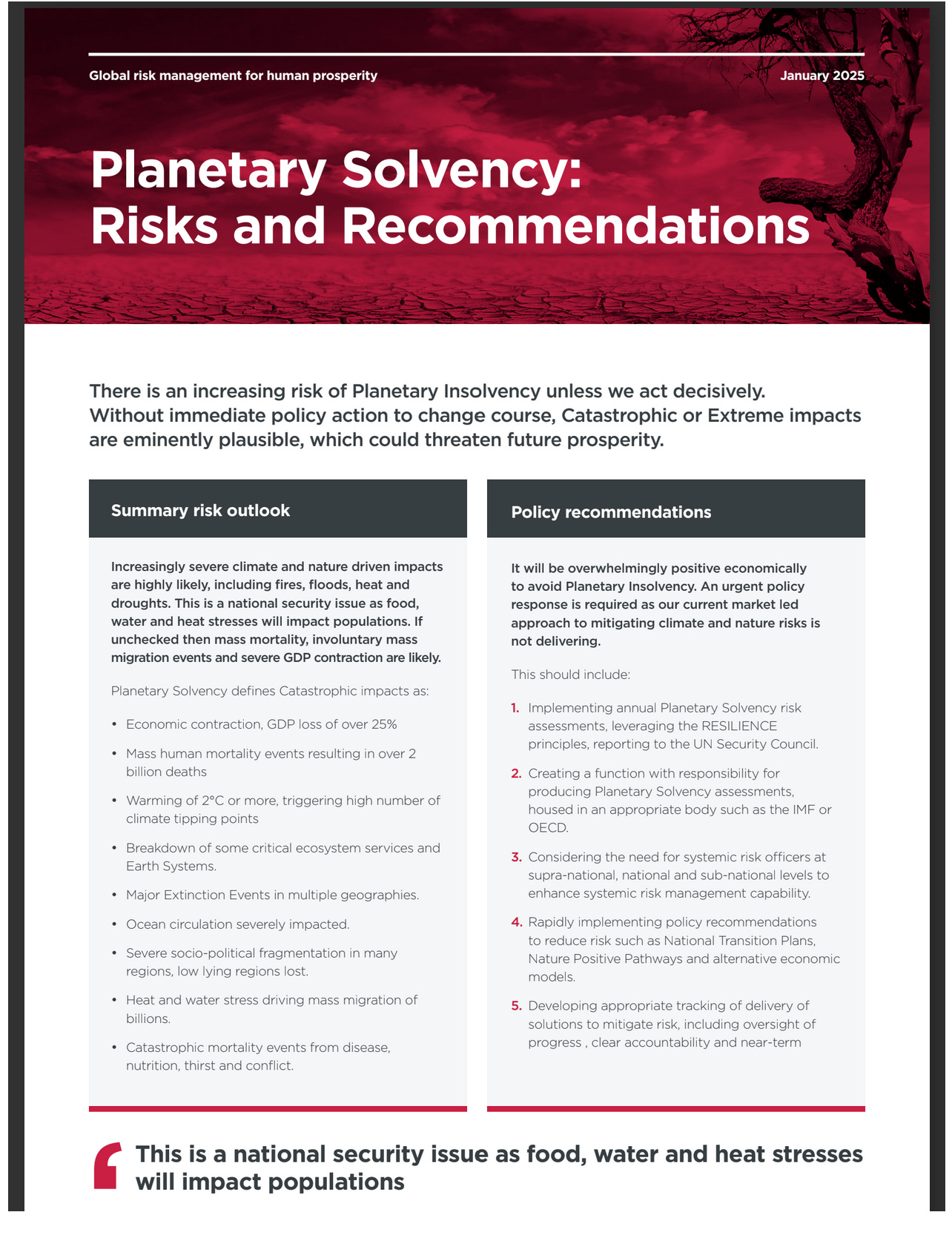
There is also a 40 page report where the information in the Guardian article can be found.
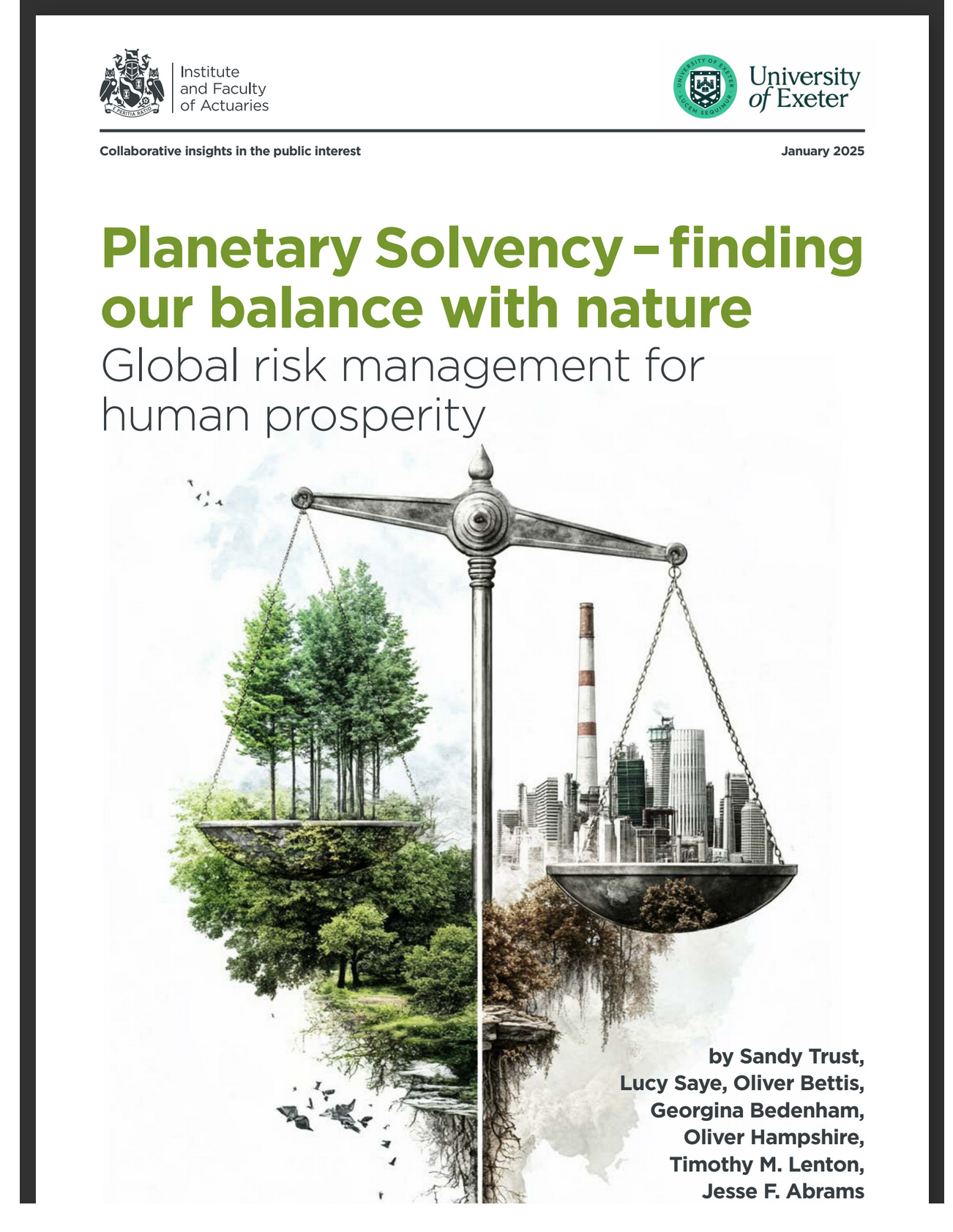
From the Foreword on page seven.
Actuaries deal with risk and uncertainty. The techniques they have developed underpin the functioning of the global pension market with $55 trillion of assets, and the global insurance market, collecting $8 trillion of premiums annually, to help us manage risk. Society trusts actuaries and other risk management professionals to minimize the risk of failure in these markets by managing the complex risks these industries face.
Global risk management is currently failing and blind to systemic risk
As well as a failure to see systemic risk, risk management can fail because risks aren’t understood due to incomplete knowledge, or are disregarded as they are considered unlikely to occur. Risks can also be badly communicated, with important messages lost in scientific detail, or fall victim to misaligned incentives such as short-term profit winning over long-term sustainability.
High-profile climate change assessments in wide use significantly underestimate risk as they exclude many of the most severe risks we could face. Yet it is these extremes that should drive policy decisions – what is society willing to accept? And what actions can we take to mitigate those outcomes that we find unacceptable?
Policymakers are currently unable to hear warnings about risks to ongoing human progress, or unwilling to act upon them with the urgency required.
They define “planetary solvency” as.
Managing human activity to minimize the risk of societal disruption from the loss of critical support services from nature.
And state.
In the same way that a solvent pension scheme is one that continues to be able to provide pensions, a solvent Earth system is one that continues to provide the services we rely on, support ongoing prosperity, and a safe and just future. An insolvent planet is one in a state where we have degraded the Earth system to such an extent that we can no longer receive enough of the critical services we rely on to support our society and economy.
For example, shortages of food and fresh water, or uninhabitable climatic conditions. Ecosystem services are often non-substitutable, meaning that once they are lost, they are unable to be replaced through another process.
They find that.
Unfortunately, many high-profile, public climate change risk assessments are significantly underestimating risk because they exclude many of the real-world impacts of climate change, such as the impact of tipping points, extreme events, migration, sea level rise, human health impacts or geopolitical risk.
Furthermore, they calculate ongoing economic growth, even in a hothouse world, with climate damages being lower than growth assumptions. These results conflict with scientific predictions of significantly reduced human habitability from climate change.
“These (mainstream) risk assessments are precisely wrong, rather than being roughly right.”
The benign but flawed results may reinforce the narrative that these are slow-moving risks with limited impacts, rather than severe risks requiring immediate action.
The INSURANCE Actuaries estimate on page 32 of the report that:
There is a 50/50 chance of hitting +3°C over baseline by 2050. Which, if that happens. Could result in, more than 4 billion deaths, significant sociopolitical fragmentation worldwide, failure of states (with resulting rapid, enduring, and significant loss of capital), and extinction events.
At warming of +2°C they forecast.
2 billion deaths. <People thought I was crazy for making that exact estimate>
Breakdown of some critical ecosystem services and Earth systems. Major extinction events in multiple geographies. Ocean circulation severely impacted. Severe socio-political fragmentation in many regions, with low lying regions lost. Heat and water stress drive involuntary mass migration of billions. Catastrophic mortality events from disease, malnutrition, thirst and conflict.
Now, think about that when you consider this chart.
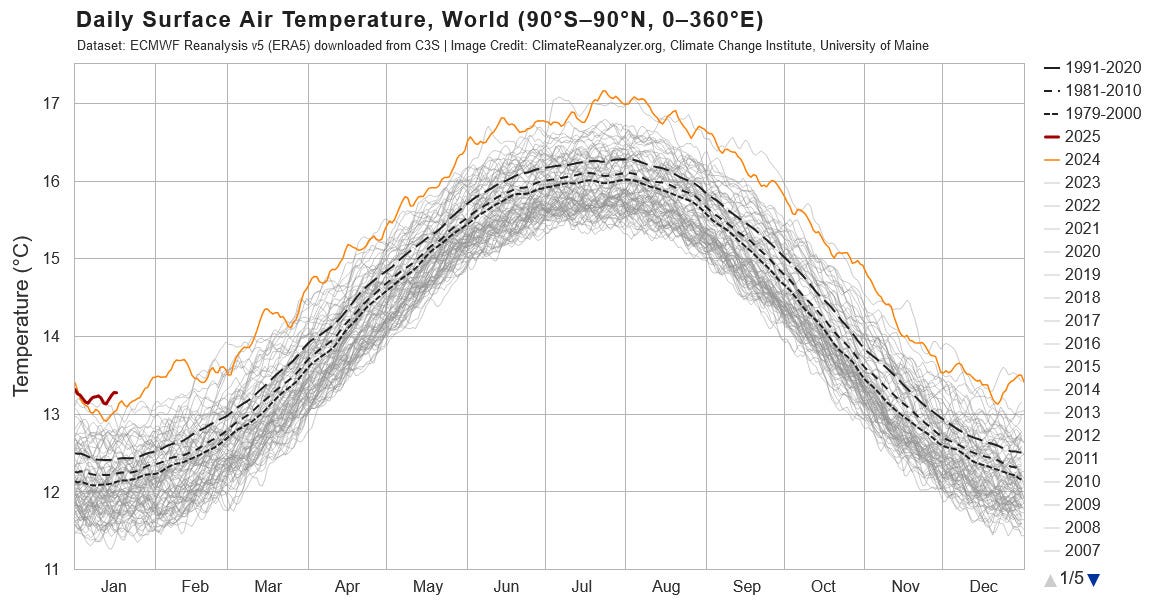
The GMST for 2024 was +1.6°C warmer than our baseline. 2025 could wind up being +1.7°C over.
We ARE going to +2°C of warming by 2035 AT THE LATEST.
No matter what the Tech Bros, Hopium Peddlers, and Techno Optimists tell you. We will be at +2°C (year round) by then. I think that means a 1.5B to 2B reduction in the human population by then.
The Insurance Actuaries agree with me.
You need to REALLY think about who and what you BELIEVE about Climate Change now. The last “good years” are over and things are going to get BAD incredibly fast from now on. COLLAPSE is accelerating.
Just like the Rate of Warming.
This is my analysis.
This is what I see.
This is my “Crisis Report”.
— rc 012125
Addendum: Commentary from the discussion on reddit.
The way to SEE this report in context. Is to see it as a statement by the insurance industry that "Climate Science" SCREWED them.
They are saying, in very polite language, that the industry has been blindsided because they believed what mainstream climate science and climate scientists have been saying for the last 20 years. They believed in "Climate Science" which indicated,
these are slow-moving risks with limited impacts, rather than severe risks requiring immediate action.
They assessed RISK based on what mainstream climate science has been saying. Now they are finding that "Climate Change" is happening not just "faster than expected" but also MUCH WORSE than they thought. When they say.
“These (mainstream) risk assessments are precisely wrong, rather than being roughly right.”
They are talking about models built around mainstream Climate Science and its forecasts and projections.
They are telling everyone who has "eyes to see and ears to hear" that MAINSTREAM Climate Science is WRONG and that things are MUCH WORSE than they thought.
Personal Notes:
If you are new to my stuff I maintain an index of my past articles here on Substack.
SubStack Index : A Guide to my Stack.
I am also on Medium.
A Mind at Work - A catalogue of Articles I’ve Written.






Congrats on 100 and thank you for sharing your writing. I still remember that step rachet explanation in another one of your articles it was so helpful - I need to read again. Good luck out there everyone.
Trump has pulled out of the unenforceable Paris climate accord, who's 1.5 C goal post we have already blown past? Oh no whatever shall we do?
There's more than one flavor of climate change denier. The MAGA-Tards are the kind that taste like shit and make me want to puke. Then there's the techno delusional and their peer delusionalist the COP & international agreement deniers. Then there are loads of people who are just not looking because they feel helpless and just keep fulfilling their roles as parent, worker, etc.
I'm not a skilled writer, nor do I have a good teacher's gentle touch, so I'm sharing something from Paul Chefurka who is both.
***Climbing The Ladder of Awareness***
When it comes to our understanding of the unfolding global crisis, each of us seems to fit somewhere along a continuum of awareness that can be roughly divided into five stages:
1 - Dead asleep. At this stage there seem to be no fundamental problems, just some shortcomings in human organization, behaviour and morality that can be fixed with the proper attention to rule-making. People at this stage tend to live their lives happily, with occasional outbursts of annoyance around election times or the quarterly corporate earnings seasons.
2 - Awareness of one fundamental problem. Whether it's Climate Change, overpopulation, Peak Oil, chemical pollution, oceanic over-fishing, biodiversity loss, corporatism, economic instability or sociopolitical injustice, one problem seems to engage the attention completely. People at this stage tend to become ardent activists for their chosen cause. They tend to be very vocal about their personal issue, and blind to any others.
3 - Awareness of many problems. As people let in more evidence from different domains, the awareness of complexity begins to grow. At this point a person worries about the prioritization of problems in terms of their immediacy and degree of impact. People at this stage may become reluctant to acknowledge new problems - for example, someone who is committed to fighting for social justice and against climate change may not recognize the problem of resource depletion. They may feel that the problem space is already complex enough, and the addition of any new concerns will only dilute the effort that needs to be focused on solving the "highest priority" problem.
4 - Awareness of the interconnections between the many problems. The realization that a solution in one domain may worsen a problem in another marks the beginning of large-scale system-level thinking. It also marks the transition from thinking of the situation in terms of a set of problems to thinking of it in terms of a predicament. At this point the possibility that there may not be a solution begins to raise its head.
People who arrive at this stage tend to withdraw into tight circles of like-minded individuals in order to trade insights and deepen their understanding of what's going on. These circles are necessarily small, both because personal dialogue is essential for this depth of exploration, and because there just aren't very many people who have arrived at this level of understanding.
5 - Awareness that the predicament encompasses all aspects of life. This includes everything we do, how we do it, our relationships with each other, as well as our treatment of the rest of the biosphere and the physical planet. With this realization, the floodgates open, and no problem is exempt from consideration or acceptance. The very concept of a "Solution" is seen through, and cast aside as a waste of effort.
For those who arrive at Stage 5 there is a real risk that depression will set in. After all, we've learned throughout our lives that our hope for tomorrow lies in our ability to solve problems today. When no amount of human cleverness appears able to solve our predicament the possibility of hope can vanish like a the light of a candle flame, to be replaced by the suffocating darkness of despair.
http://paulchefurka.ca/LadderOfAwareness.html
~~
The MAGA-Deniers do not matter, nor do any of the COP's or Paris accord, nor another 9,000,000 warnings from individual scientists or the scientific community. Humans are in the predicaments they are in due to their behaviour, which they are not the authors of. We did not create ourselves.
I hate those MAGA fuck tards as much as anyone, if not the most and I am no fan of western left winger self proclaimed saviors come to fix all social ills - they know best. I hate all those right-wing denier scum no matter what nation they are from, but they can no more help their denial than I can help my hate and my schadenfreude watching them burn and drown and such.
We were headed here all along. Once humans evolved full behavioural modernity it was just a matter of time before they unlocked the power of fossil fuels and birthed industrial civilization. Sure the timing could have been different, sooner or later, but the humans are far too clever not to have exploited fossil fuel's full power. I know all about big oil's yearly billion dollar denial campaign budget and I think it's 1 of the biggest waste of money in history. It's tied with the collective environmental NGO's yearly 'fight climate' multi-billion dollar bull shit budget.
With a couple minor exceptions fossil fuel use has gone up every year since James Hansen addressed the US senate and the world with the first serious no doubt climte change warning.
If all the people who claim to view climate change as a serious threat were to reduce their energy use and consumption by a modest 20%, don't you think that it would show up in the economic and energy consumption data? Truth - how many people have given up the goodies for real? I have, but it was as much about me checking out of society as much as I could without becoming homeless. I know it's a bit of a contradiction for me on the one hand say humans are not responsible for the predicaments they are in, while on the other hand hating the fuck out of right-wing, mostly N American, climate change deniers, but I am only human after all.
~
***The purpose of life is to disperse energy***
The truly dangerous ideas in science tend to be those that threaten the collective ego of humanity and knock us further off our pedestal of centrality. The Copernican Revolution abruptly dislodged humans from the center of the universe. The Darwinian Revolution yanked Homo sapiens from the pinnacle of life. Today another menacing revolution sits at the horizon of knowledge, patiently awaiting broad realization by the same egotistical species.
The dangerous idea is this: the purpose of life is to disperse energy.
Many of us are at least somewhat familiar with the second law of thermodynamics, the unwavering propensity of energy to disperse and, in doing so, transition from high quality to low quality forms. More generally, as stated by ecologist Eric Schneider, "nature abhors a gradient," where a gradient is simply a difference over a distance — for example, in temperature or pressure. Open physical systems — including those of the atmosphere, hydrosphere, and geosphere — all embody this law, being driven by the dispersal of energy, particularly the flow of heat, continually attempting to achieve equilibrium. Phenomena as diverse as lithospheric plate motions, the northward flow of the Gulf Stream, and occurrence of deadly hurricanes are all examples of second law manifestations.
There is growing evidence that life, the biosphere, is no different. It has often been said the life's complexity contravenes the second law, indicating the work either of a deity or some unknown natural process, depending on one's bias. Yet the evolution of life and the dynamics of ecosystems obey the second law mandate, functioning in large part to dissipate energy. They do so not by burning brightly and disappearing, like a fire torching a forest, but through stable metabolic cycles that store chemical energy and continually reduce the solar gradient. Photosynthetic plants, bacteria, and algae capture energy from the sun and form the core of all food webs.
Virtually all organisms, including humans, are, in a real sense, sunlight transmogrified, temporary waypoints in the flow of energy. Ecological succession, viewed from a thermodynamic perspective, is a process that maximizes the capture and degradation of energy. Similarly, the tendency for life to become more complex over the past 3.5 billion years (as well as the overall increase in biomass and organismal diversity through time) is not due simply to natural selection, as most evolutionists still argue, but also to nature's "efforts" to grab more and more of the sun's flow. The slow burn that characterizes life enables ecological systems to persist over deep time, changing in response to external and internal perturbations.
MORE
https://www.edge.org/response-detail/10674
~~~~~
You & Me and the MPP
I do appreciate all the time and effort you put in to creating The Crisis Reports.